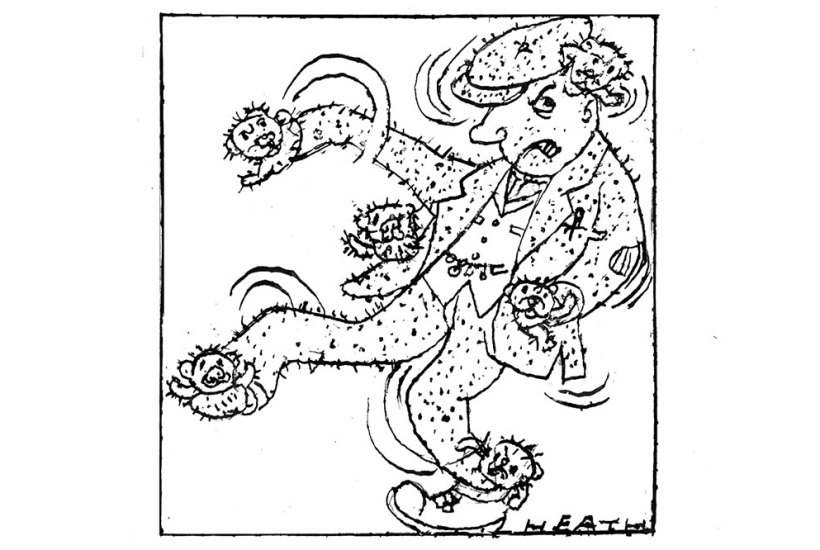The British are fond of ferrets. There is a portrait of Queen Elizabeth I at Hatfield House holding one on a collar and lead. For Yorkshire miners in the 1970s, tales of ‘ferret-legging’ – an endurance test whereby two of the rodents were put down competitors’ trousers – were legendary. (The world record is held by Frank Bartlett, a retired headmaster, who managed to endure the bites and scratches for five hours, 30 minutes.)
So it feels a little odd that ferret racing was invented in the United States. Rather than being conceived in the backroom of some raucous Jacobean tavern, it was a Friday night distraction for rednecks laying oil and gas pipes through the North American wilderness. Racing was also an after-work gig for the ferrets whose instinct to explore dark places made them quick and useful assistants for threading cables down pipes.
Today in the UK, there are several rent-a-ferret companies you can turn to if you want to set up a race. A race night will feature dozens of the animals running eight or ten contests over the course of a few hours, but the stakes are not high – usually £1 a time. Winning tickets share the total proceeds minus a cut for whatever cause is being sponsored.
In my tiny Somerset village of Huish Champflower at the end of last year we decided to hold our own ferret race for the first time. We erected a temporary bar which encouraged a good pre-race braggadocio: mock form-studying, loud predictions on outcomes and nonsensical betting strategies.
Five pipes were laid on the polished pine floor, each one a different colour, a box with a trap door at one end and an open exit at the other. The ferretman had recruited six children to lift the trap doors when he blew the starter’s whistle. Some of them looked more capable of concentration than others, which should have given some runners an advantage, but made little difference.
Ferretman was an intriguing figure. Stocky and bow-legged, he came from Dulverton, bang in the centre of Exmoor, where everyone hunts, shoots, kills, skins, traps or catches something. I didn’t count the number of fingers on each of his hands, but there did seem to be quite a few missing, with a lot of sticking plaster on the remaining ones. This lent weight to the one health and safety notice of the evening: should a ferret break loose and run past you, don’t pick it up.
The races didn’t take long and were only really interesting if you held a betting slip. The last raised the loudest roars as the ferrets reached the end of the pipe and then refused to scamper out – four legs on the floor at the end was the definition of victory. Around £500 changed hands over the night, including the bar and the sponsorship. A third of it went towards maintenance of the village hall, but the bigger dividend was simply how much fun it was. There are no pubs, shops, schools or other social outlets in Huish Champflower, so village hall and church events are the only way to get local people together on chilly winter evenings.
And, for any who might frown upon meaningless distractions in these challenging times, they are educational events too. Who would have guessed looking at Good Queen Bess holding her ferret on a gilded leash, that the animals smell something rotten. Another reason not to pick one up.
Got something to add? Join the discussion and comment below.
Get 10 issues for just $10
Subscribe to The Spectator Australia today for the next 10 magazine issues, plus full online access, for just $10.
You might disagree with half of it, but you’ll enjoy reading all of it. Try your first month for free, then just $2 a week for the remainder of your first year.








Comments
Don't miss out
Join the conversation with other Spectator Australia readers. Subscribe to leave a comment.
SUBSCRIBEAlready a subscriber? Log in